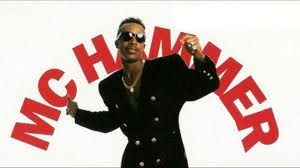With strep throat twice in the last three weeks (the first round of antibiotics I took didn’t work), I haven’t felt up to doing much writing. I also debated whether to finish this series, but the talks in church last week were on financial and spiritual preparedness, so I took that as a sign that I better continue.
In the 1973 movie The Friends of Eddie Coyle, the character Jackie Brown (played by Steven Keats) says, “This life’s HARD man, but it’s HARDER if you’re stupid!”
When it comes to your finances, you have to be smart. That means making a budget, setting goals, and tracking your spending. The secret to becoming financially independent is really quite simple: you either create a software program that revolutionizes the computer industry, or more commonly, you save small amounts of money regularly over long periods of time.
I’ve thought long and hard about the biggest problem for most people to get ahead, and the bottom line is that they cannot control their spending, so life becomes a lot harder. I loved the book “Driven,” the autobiography of Larry Miller. Although he only had a high school diploma, he became a self-made millionaire, successful businessman, and owner of the Utah Jazz. He worked very hard for his money, but the reason he even got ahead at all was that he and his wife were smart about spending it. They refused to use credit cards and tried to avoid taking out loans, and when they did have to take out a loan, they worked hard to pay it off as soon as possible and always early. He said the key to them becoming financially independent, and where most people fail, is that when he received a raise or bonus, instead of increasing their standard of living, they would save the extra income and invest it. When people go on exotic vacations, buy extravagant homes, or splurge on fancy cars, they are simply increasing their spending and maintaining the same level of debt relative to their income, so they will never get ahead financially. Larry Miller mentions in the book that it was years before he even bought a power lawn mower, rather, he used an old manual one with the twirly blades. Now we have never owned a push mower, but this is part of the reason Dawn and I spent very little on our honeymoon. We drove to St. George and stayed in her grandparents’ trailer. We even bought groceries and ate ‘in’ for most of our meals. Perhaps if we had more to spend, we would have, but we realized our limitations and stayed within our means as best we could.
Matt Harpring, former Utah Jazz player, wrote an interesting article on ksl.com that talks about why athletes go broke. It truly is mindboggling to most people the amount of money these professional athletes earn, yet he noted that about 60% of NBA players are out of money within five years of retirement, while about 78% of NFL players are broke within two years of hanging up the cleats.
Most professional athletes change their spending habits while the money is good, and then struggle after retirement, oftentimes going bankrupt in just a few years. Matt made one observation that I think really hits home is this: “Regardless of salary, statistics show many Americans spend everything they earn. As dangerous as that is for the ordinary folk, it’s even more so for athletes that are one injury away from a career being over.” I would beg to differ in that it is dangerous for everyone regardless of profession because we are all just one tragic accident or health crisis away from a career being over, and who wants to work until their 70 years old anyway?
Elder Perry shared some alarming statistics during his financial class last month. He said that according to the US Census Bureau, in 2011, nearly 50 million seniors were living below the poverty level (about 16% of seniors), and many more live just on the edge of a financial crisis. Most of them rely solely on Social Security and Medicare for their sustenance, but that is barely enough to live on, especially when you throw in out-of-pocket health costs. Many businesses no longer offer pensions, and even those that do are no longer a guarantee. It is really up to each individual to plan for their retirement and not blindly hope or rely on others to fill that need. Elder Perry offered a great quote: “Sacrifice now or sacrifice later, but sacrifice you will.”
With that sacrifice in mind, you have to summon the discipline to spend less than you earn. So ask yourself, am I sacrificing now? Or have you adopted more of an “eat, drink, and be merry” attitude, because tomorrow you may die? What if you don’t die tomorrow? Unless you’re close to finishing that computer software, hopefully you are taking steps to not spend everything you earn. The next installment will look at what to do with the extra money you don’t spend each paycheck.
© Copyright 2012 Jeff, All rights Reserved. Written For: Jeffrey Olsen

